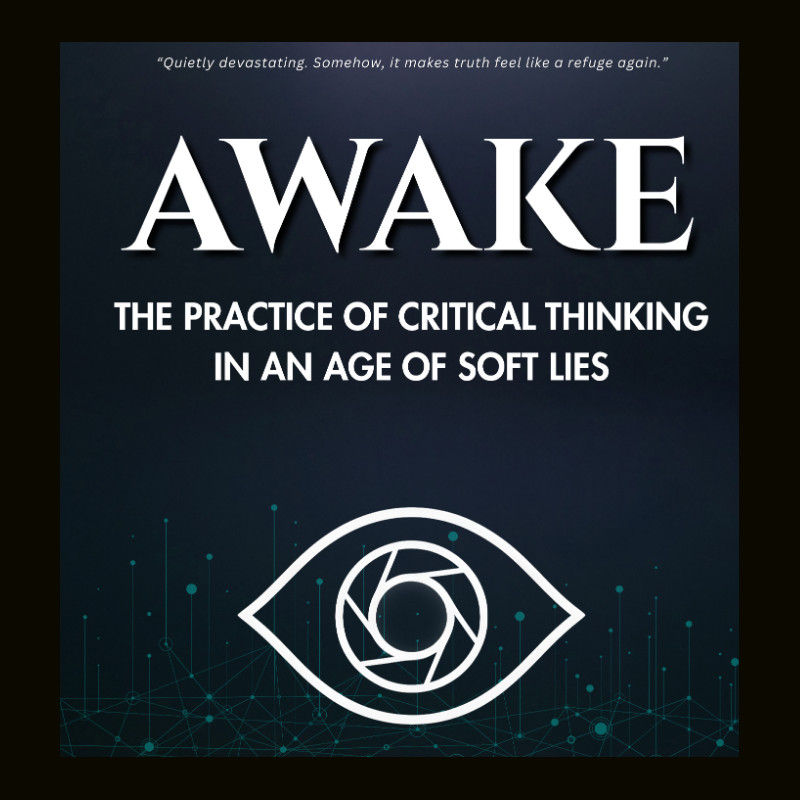MIsinformation Susceptibility Test - how vulnerable to fake news are we?
- Terry Wigmore
- May 18, 2024
- 3 min read
Updated: May 19, 2024

There are some profound implications that have come from the data collected by Cambridge University's misinformation susceptibility test, nothing that astounds anyone who thinks about their media diet and their sources of information that they "click, like, share", but reading the report about the key findings is a real wake-up call with implications for modern western democracies as we grapple with AI and a free-press during election cycles and during health care crises such as the Covid 19 pandemic. (read the article and take the survey - https://www.cam.ac.uk/stories/misinformation-susceptibility-test )
I would like to point out, that one key finding in the Cambridge survey was that, contrary to public perception, the boomers and legacy media are far less likely to be vulnerable to fake news. Boomers did not have the countless digital services that presently pawn themselves off as "news". Springsteen lamented in 2011, that there were "57 channels and nothing on". Now there are thousands of media outlets although most are owned by less than 10 companies (https://www.pewresearch.org/journalism/fact-sheet/digital-news/) Has that made boomers less vulnerable to fake news? I don't think the article goes into the reason, only saying that this is the data.
Do we have too much information? A 24/7 cycle of never-ending "Breaking News" may be partly to blame for the rapid spread of misinformation. Media outlets are blasting out ideas, often using sources that are not cited, or relying on less-than-reputable hearsay from other media outlets in what often seems like a closed loop of similar information. There is simply too much to process, so how can consumers of media determine the reliability of the content they are consuming?
Consider the source of your media? Legacy media is not as bad as Gen Z and Millennials would have us believe. There are services available that rate the various media outlets. Check out https://guides.library.harvard.edu/newsleans/thechart.
Include a wide range of sources in your media diet - always going to a few "trusted" sources is a recipe for indoctrination into the feedback loop of bias and agendas. Look for diverse opinions and explorations of thoughts and ideas rather than a spoon-feeding of the usual.
Talk to people, and hear what they have to say. Sometimes you will hear things that are obviously so far afield that you raise one eyebrow ( a current Canadian government advertising effort to combat misinformation depicts that idea visually https://www.canada.ca/en/campaign/online-disinformation.htm ). Sometimes you will hear perspectives that you hadn't considered and that make more sense to you, while other conversations will simply reinforce views that you already have. Regardless, listening to others, in conversations, will give you a more balanced view, helping you to form opinions based on more information.
Not all information is the same, in content as well as intent. Some information is intended to persuade you and may sound convincing on the surface, until you are able to weigh it more with critical thinking skills. Always consider the evidence of a claim. If there is only hearsay, proceed with caution. If the evidence given is from questionable sites or sources, proceed with caution. If no one you consider to be thoughtful, in your own circle of family and friends, believes the information you are consuming, again, proceed with caution. Some purveyors of online content are like wolves in sheep clothing - they are state actors or political players buying online distribution on various social media platforms - (https://www.cbc.ca/news/politics/csis-disinformation-ads-soviet-imagery-1.6955717)
Be skeptical. If your one eyebrow is raised, ask questions. If it doesn't ring true , it may not be . Truth does have a certain "ring" to it, according to Ernest Hemingway.
AI is as AI does. AI, in some form or another is often used to generate misleading and fake news stories. The Cambridge study generated the fake news headlines using AI, too. If we teach it too much, will AI out-fake us all? Interesting thought ;)
What were the sources of news used by the lowest scoring respondents in the Cambridge study?






Comments